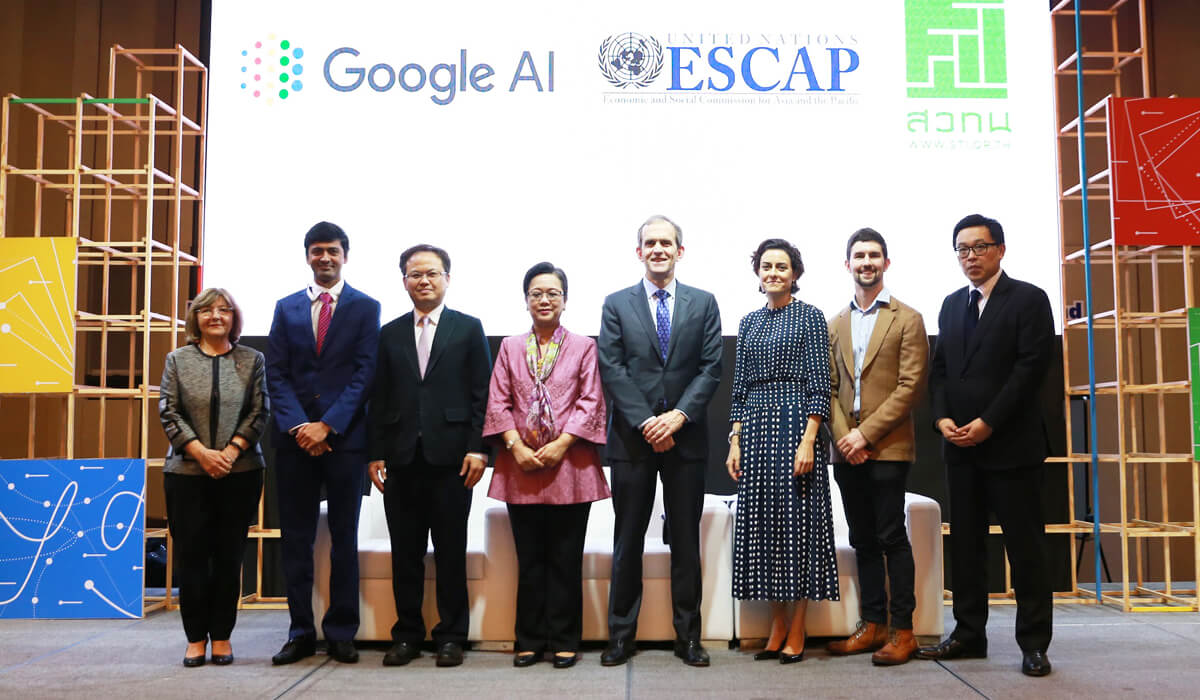Google ส่งบริการแผนที่ช่วยผู้ใช้รถยนต์ไฟฟ้าค้นหาจุดชาร์จไฟที่ใกล้ที่สุดได้แล้ว พร้อมให้ข้อมูลที่จำเป็นต่อการตัดสินใจ เช่น จำนวนหัวจ่าย เวลาที่ใช้ในการชาร์จ

Google and the United Nations Economic and Social Commission for Asia and the Pacific (ESCAP), in collaboration with the National Science, Technology and Innovation (STI) Policy Office of Thailand, hosted the Asia-Pacific AI for Social Good Summit in Bangkok, bringing together researchers, policy makers, NGOs, and the private sector from across the Asia-Pacific region to discuss the use of AI for Social Good.
Google and ESCAP initiated a partnership to share best practices and identify solutions for promoting the use of AI for social good in Asia-Pacific. As part of the partnership, Google will be providing a grant to the Association of Pacific Rim Universities to create an Asia-Pacific AI for Social Good Research Network. “This network will bring together leading academics from around the region to produce research on how to promote the use AI for social good and how best to manage risks and concerns. It will also be a forum for these academics to discuss their research with government, civil society, and the private sector,” explained Kent Walker, Senior Vice President of Global Affairs, Google.
Google also announced a partnership with the Rajavithi Hospital of the Department of Medical Services, Ministry of Public Health in Thailand to help prevent blindness using its AI-powered software that screens for diabetic retinopathy. The initiative is already rolled out across several clinics in India with help from Verily. Now, after months of retrospective study in Thailand, Google is collaborating with Rajavithi Hospital to kick off clinical trials in select sites across the country.
Dr. Paisan, Assistant Director of the Centre of Medical Excellence at Rajavithi Hospital, said: “There are over five million patients with diabetes in Thailand, all of them are at risk of diabetic eye disease, a condition that can lead to blindness. This blindness can be prevented by regular screenings. The results of the retrospective study show that the AI model was able to catch the eye disease better than trained human graders conducting similar screenings. We’re excited to collaborate with Google to study how the AI tool they built can help screen more Thais with this disease to prevent blindness.” Lily Peng, Product Manager, Google Health, added: “Google’s goal is to make the benefits of AI available to everyone. We’re excited to expand our important initiative in partnership with Rajavithi Hospital, with the goal of helping more Thais get screened for this preventable form of blindness.”
Following this Summit will be the Asia-Pacific convening of the recently announced Google AI Impact Challenge, a $25 million USD call for proposals from any organization or institution with ideas for how to use AI for social good. In order to help organizations from APAC region apply for the fund, the second day of the summit will provide opportunities for potential applicants to undergo training and build partnerships, including engaging directly with leading AI experts. The AI Impact Challenge is open for applications until January 22, 2019.

